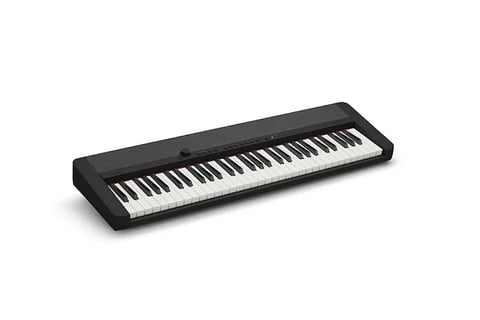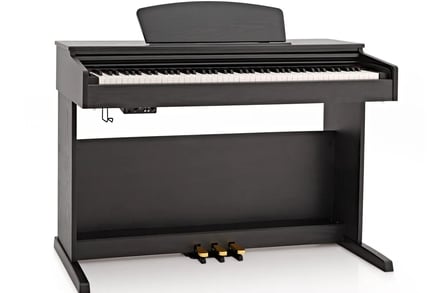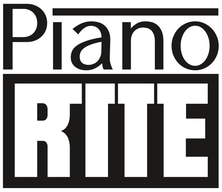Can adults learn to play the piano?
I think the best way to answer this question is with another question:
Can an adult learn how to ride a bike?
Can they learn how to swim?
Can they learn another language?
The answer to these questions is of course yes!
In simple terms, playing the piano is a skill. It requires fine motor skills such coordination, balance, agility and speed etc. all of which can be taught.
But there is a second question that adult learners must ask themselves:
Is it possible for an adult to learn how to swim, as a beginner, and compete in the Olympics?
Is it possible for an adult to learn another language and speak it like a native?
The answer is probably No.
Essentially it depends on how far you want to go. Let’s assume that an adult learner is realistic and does not want to become a concert pianist or win a prestigious piano competition such as the Chopin, Leeds or Tchaikovsky competition. They instead want to be a competent pianist, who can read and understand symbols and move at the piano with relative ease. Or they want to play some of the pop or classical tunes that they have always loved (not virtuosic music such as Beethoven’s Hammerklavier!)
In that case they certainly can learn to play the piano and they can become good pianists too.
However, they must understand that their progress is contingent on how often they practice and how mindful they are of the specific things that they need to practise. Having a good teacher is also an important factor (a topic for another day!)
If this is what they want and they have understood and accepted the requirements, then I believe an adult learner only needs two main ingredients to learn the piano: love for the instrument and determination.
12/11/2023
This depends on how far you would like to go.
Is your goal becoming a professional pianist? Then you must practise several hours a day, with one day a week set aside for rest and recovery.
Perhaps you want to compete in piano competitions and win?
Then you must practise for hours every day and perform as much as you can in public.
Maybe you are looking to do your graded exams, completing one grade a year?
You will still need to practise regularly, but not with the same intensity. Maybe 30 minutes-1 hour a day 5 days a week.
Or maybe you just want to learn simple pieces and you are in no rush?
In which case, you can practise at your own leisure!
It is quite difficult to quantify necessary practise time, as it is contingent on a myriad of factors such as:
How quickly you learn.
How good your memory is.
How encouraging your environment is.
How determined you are to succeed.
How good your stamina and attention span is.
How good and mindful your daily practise is.
Where you are in your pianistic development etc.
There is a belief that some professionals hold, which states that in order to acquire a skill, one must practise it for at least 10,000 hours! So ask yourself this:
How far are you willing to go?
How fast do you want to get there?
And how many hours of your 10,000 hours have you completed?
12/18/2023


Several factors determine how fast you can learn a piece, including your experience, skill level, practise frequency and quality, the repertoire you are working on, your natural abilities and your will power.
Your skill level is determined by the number of years you have been playing the piano and your competency at the instrument. Are you a beginner, intermediate, or advanced pianist? Can you effortlessly play scales, arpeggios, chords, jumps, trills, and do you have a good understanding of music theory and stylistic performance?
The frequency of your practise also affects your learning speed. Do you practise regularly, making it a priority in your life, or do you only practise a few times a week for short sessions?
The quality of your practise is crucial in learning a piece quickly. Having a well-structured practise plan, focusing on specific sections each day, and staying mentally present during practise sessions are essential. Can you control your mind and stay focused on the task at hand?
The repertoire you choose has a significant impact on how fast you learn it. Learning a complex piece like a Liszt etude will naturally take longer than learning a simpler grade 1 piece.
Natural abilities such as perfect pitch and a good memory, can aid in learning music. However, the most important attribute for success in any discipline, including playing an instrument, is willpower. Natural talent alone does not guarantee success. Discipline and hard work are crucial for achieving goals. While perfect pitch may help with note recognition and sight-singing, it does not improve finger dexterity, which can only be enhanced through dedicated practise. Conversely, a committed and disciplined student without these natural abilities can progress at a higher rate.
In summary, the speed at which you can learn a piece quickly depends on various factors. Your skill level, practise frequency and quality, the complexity of the repertoire, and the determination to succeed all play crucial roles. While natural abilities can be beneficial, it is ultimately your dedication and hard work that will determine your success as a pianist.
01/07/2024


What is the right piano for me? A general guide to choosing a piano.
When it comes to purchasing a piano, your budget and musical aspirations will ultimately determine the options available to you. There are four distinct types of keyboards and pianos that you can consider, each with their own advantages and disadvantages.
Option 1 - Compact 4/5 Octave Keyboards:
Advantages:
- Cost-effective option
- Portable and easy to transport
- Ideal for limited space situations
- No need for tuning
- Can be used with headphones for private practice
- Suitable for beginners unsure of long-term commitment
Disadvantages:
- Keys are typically not weighted, despite claims
- Lack of pedals found in acoustic or digital pianos
- Limited range compared to standard pianos
- Not designed to replicate the authentic piano sound
- Insufficient for developing advanced piano techniques
Option 2 - Digital or Digital Hybrid Pianos:
Advantages:
- While not as inexpensive as a small keyboard, they are generally affordable (digital hybrids are pricier due to their acoustic action and realistic pedals)
- They offer 88 keys, providing the full range of an upright and grand piano
- Equipped with 3 pedals
- The keys have weighted action, resembling the feel of a traditional piano.
- No need for tuning.
- A good digital piano is suitable for up to grade 5/6 (a hybrid serves as an almost perfect substitute for an upright piano)
- The option to use headphones
- Typically equipped with USB and MIDI input/output, allowing connection to a PC/laptop
Disadvantages:
- While they are more portable than acoustic pianos, they still require some space
- Cheaper versions may lack realistic pedals, often only offering a sustain pedal without gradation
- They do not produce the same sonority as acoustic pianos as they don't have strings or a soundboard
- They rely on electricity
Option 3 - Acoustic Upright Pianos:
Advantages:
- Offers 88 keys, providing the full range of a piano (typically)
- Depending on the quality, they produce a pleasing sonority
- Provides a real touch, as they are authentic pianos
- Does not rely on electricity
- Suitable for players of any grade
- Equipped with two functioning pedals (sustain and una corda). The middle pedal is not a sostenuto as a grand but a piece of felt that is placed between the hammers and the strings in order to make the piano sound quieter
Disadvantages:
- Difficult to move around due to their heavy weight
- Requires regular tuning to maintain optimal performance
- Unable to use headphones (unless a silent system is installed, which usually comes at an additional cost of around £1500)
- Does not have a sostenuto pedal
- Not easy to sell
Option 4 - Grand Pianos:
Advantages:
- Offers the full range of keys
- Provides a natural touch and feel
- Equipped with a double escapement mechanism for enhanced playability especially repeated notes
- Features three functional pedals
- Easier to move around compared to upright pianos, due to the wheels
- Produces high-quality sound
- Considered the pinnacle of piano craftsmanship
Disadvantages:
- Comes with a hefty price tag, making them very expensive
- Often challenging to sell due to their high cost and specialised nature
- Requires a significant amount of space due to their large size
- Needs regular tuning to maintain optimal performance
- Unable to use headphones unless a silent system is installed, which usually incurs additional costs
01/29/2024










